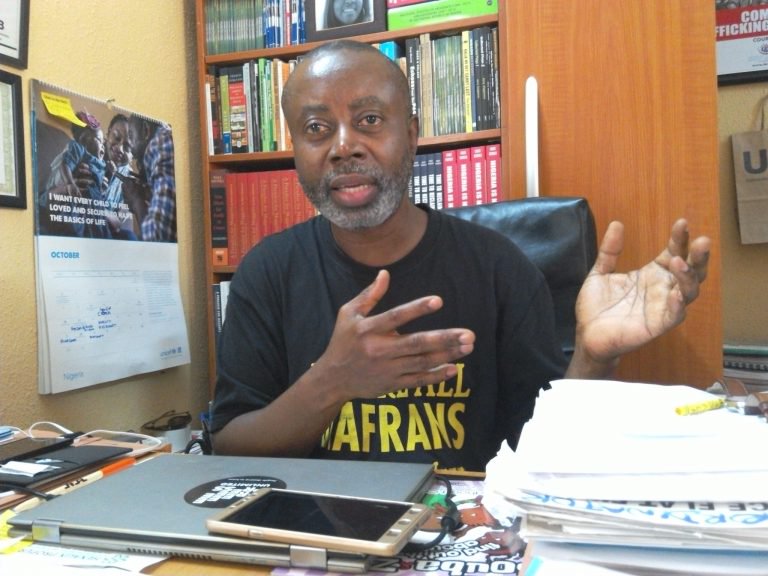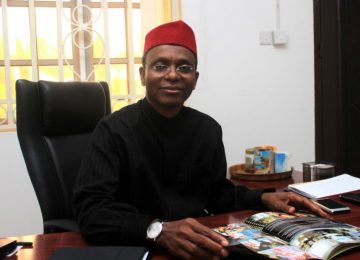Chido Onumah, journalist and coordinator, African Centre for Media and Information Literacy (AFRICMIL), launched ‘Corruption Anonymous’ (CORA) in February. According to him, the project is aimed at creating confidence in the federal government’s whistleblower policy.
In this interview with TheCable.ng, he gives insights into the “missing links” in the policy; steps the government needs to take in order to prevent the policy from derailing. Onumah also talked about how some Nigerians have been made scapegoats after blowing the whistle in their various places of work.
What is the idea behind Corruption Anonymous?
Onumah: The idea is to see how groups, civil societies, individuals and media can work together in the fight against corruption. So we launched the programme at the beginning of this year to support the whistleblower policy of the federal government. The ministry of finance oversees the policy and then there is the unit or agency – Presidential initiative on continuous audit – in the ministry that is handling the issue. Unfortunately, we have been trying for like six months now to get them to partner with us; we have written several letters to the minister, no response. We have tried to contact the unit spearheading the policy, we have not been able to get any positive response from them. But we will keep trying.
So, what are the things you intend to achieve through CORA?
First, awareness. How many Nigerians know about the whistleblower policy? If you don’t know about it, it is going to be difficult for people to access it or know what to do. So, we want to do advocacy in that regard. We have been creating awareness about it through various means – radio jingles, fliers, even in the media.
Number two is interrogating the integrity of the process. Are people even submitting tips? And against which government agency or ministry did they blow the whistle? Just to know the places people are reporting that corruption is taking place. We need to know the details. And when the ministry of finance gets the reports, it is supposed to send it to various anti-corruption agencies to investigate and follow up. But we don’t know if they are doing that. Then of course, if the anti-corruption agencies get the reports, they are supposed to work on it; prosecute if there is enough evidence. But we also don’t know if they are doing that. All we know is that once in a while, EFCC will come and say we recovered this amount through the help of whistleblowers. We need to know the details to avoid a case of some people selling other people’s information to make money. Whistleblowers are also worried that people could make money off their information.
The third aspect of this process is the protection of whistleblowers themselves. If whistleblowers do not feel secure, it is going to be difficult for them to blow the whistle. We have seen cases where whistleblowers were victimised. And the case of secrecy is very common in the civil service. A lot of civil servants are languishing because they have raised concerns about corruption within their agencies and they get sacked. And they are afraid to come to the press because they think they will talk to a minister or a permanent secretary to beg on their behalf and be reinstated and made to promise they won’t do it again. But few have been able to come out. There was a case of one Thomson in the ministry of foreign affairs who was sacked last year but has just been reinstated. It took a lot of time before that could happen; we had to fight on his behalf till it happened. So, if it continues this way, not many people will be interested in whistle-blowing, knowing that at the end of the day, it is the punishment you get for the work you did. They suspended him and sacked him and even when he was recalled, they still kept punishing him because they took him to the library department, though he has left for another ministry.
There is another case of Murtala Ibrahim who was sacked from the Federal Mortgage Bank. We are also working on his case. With this kind of situation, even when people see that something terrible is happening around their desk, when you think at the end of the day, you calculate your loss, you would resolve it is not worth it. So, if the government shows more commitment in terms of protecting whistleblowers, more people will come out.
“If the government shows more commitment in terms of protecting whistleblowers, more people will come out.”
But there is a whistleblower protection bill that has been passed by the senate and is currently pending at the house of representatives?
Yes, one of the things we are hoping will happen with the bill that is to also put a stiff penalty for people who punish whistleblowers. It is also another way of protecting whistleblowers from these directors and other persons who sack whistleblowers. Another concern we also have with the bill is the criminalisation of whistleblowers. Some of the anti-corruption agencies, their acts state the kind of punishment to be meted out if you give wrong information. But I don’t want us to codify that aspect of the bill. Sometimes people may blow the whistle and things may not work out the way the investigators expect it to work out. I could give a tip that someone stashed two billion naira in an office and before the investigators come, the person has removed it. And you now say I gave wrong information and that I am liable to being jailed.
The information on whistleblowing should be secret and anonymous. If you blow the whistle against me, the government, through the agencies, is meant to secretly investigate. When you do an investigation and you don’t find enough information about it, you leave the place. Nobody knows about it. So, to now put the onus on the whistleblower will discourage him and in fact, empower corrupt people.
There have been cases where an agency like the EFCC conducts a raid usually based on a tip from a whistleblower and nothing is found at the end of the day. Considering that the raid is in public domain, they may argue that they have a strong reason to prosecute the person?
Raid is not the first thing you need to do. If somebody says there is two billion naira in this house, you can lay siege to the house and ask people around the place. In cases like this, you don’t have to come out in the open and tell the world you are investigating. Do your jobs diligently and secretly, if you find something, you can work on it and if nothing comes up, then that’s it. Don’t scare the people away with the punishments. Even if you say there will be consequences for giving out false information, it is not what you will take very seriously.
So, the onus lies on the anti-corruption agencies to be more thorough in their own investigation, rather than putting the blame on the person. But, of course, they should also check the people that give them information to see if it is a credible source; question them if need be.
Some Nigerians have alleged that recovered loot were re-looted and that way, whistleblowers are not encouraged to blow the whistle. What do you think about this?
It’s a challenge, no doubt, but we are not certain the money is being misused. We just assume, in most cases. There is no tracking to know except people assuming as part of the whole corruption allegations.
Looking at the Ikoyi incident where some cash in various currencies were discovered, the money has been forfeited to the government and that seems to be the end of the issue. Do you think there is a need for government to institutionalise the whistleblower policy so issues like the Ikoyi scandal would be adequately dealt with?
Yes, people have to be responsible for the criminal activity that has taken place when such forfeitures are made. People need to be punished because if they are not punished, there will be no incentive to blow the whistle. It is not just about the percentage gotten from the money, it is also about seeing that justice is done. If you forfeit the money and allow the person to go free tomorrow, other people will commit the same crime knowing it will all end in forfeiting the money. The government needs to follow up on the case to give satisfaction to the whistleblowers and also as a preventive measure so that tomorrow, people will not be emboldened to do such knowing that they will not only lose the money if they commit fraud but will also go to jail. So, this is part of the process of institutionalising the policy. Government should look into to the policy and make it sustainable.
Culled from TheCable.ng




